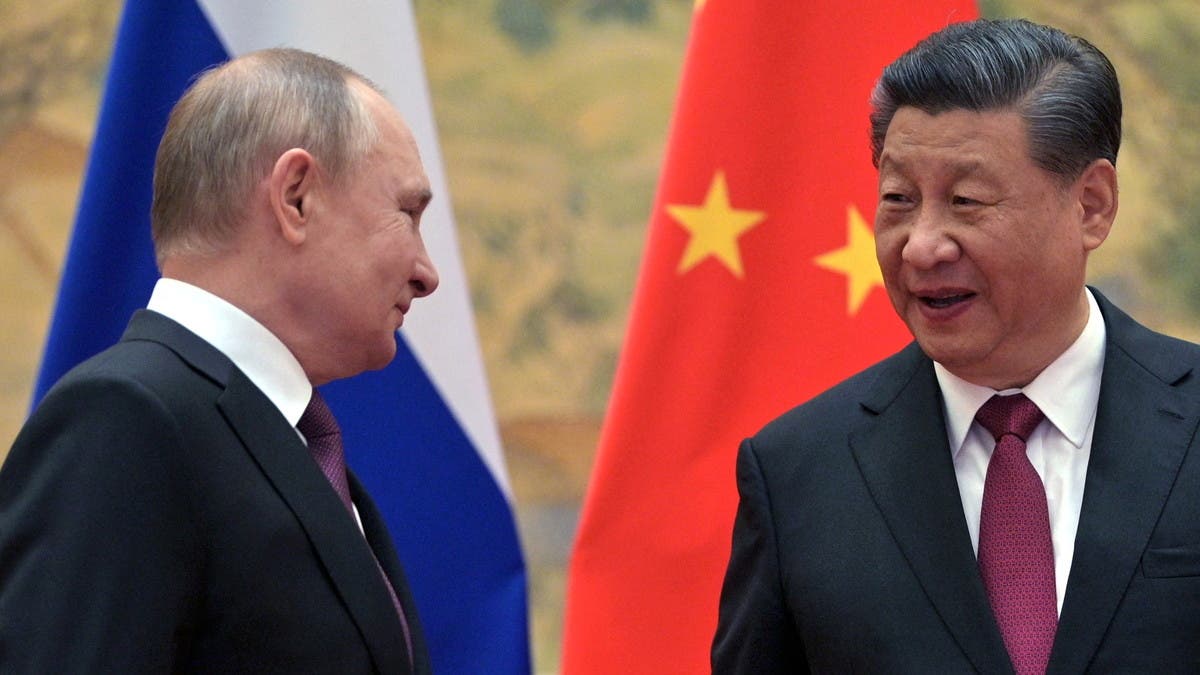The Biden administration made a carefully orchestrated gamble this week, issuing a series of public and private threats to Beijing that it will face consequences if it supports Russia’s invasion of Ukraine.
The strategy was capped by a tense, seven-hour meeting in Rome on Monday between US President Joe Biden’s national security adviser, Jake Sullivan, and China’s top diplomat Yang Jiechi.
For the latest headlines, follow our Google News channel online or via the app.
Having fired loud diplomatic salvos at Beijing, Biden administration officials are still debating the next steps to take to ensure China does not help Russia evade Western sanctions or supply weapons to Moscow as casualties mount in Ukraine.
One result of the Rome meeting was announced on Thursday – Chinese President Xi Jinping will speak with Biden on Friday about “managing the competition between our two countries as well as Russia’s war against Ukraine,” the White House said.
It is not likely to be an easy conversation.
Beijing was combative in the Rome talks, people briefed on the interactions say. One US-based person briefed on the meeting described Chinese officials’ response as “tough” and “offensive.” Another said simply that the talks did not go well.
Washington is now sorting through a host of unanswered questions, including where any “red line” regarding Ukraine that China would need to cross to trigger a US response is, and what exactly that response would be, administration officials say.
The Biden administration is waiting to see what China does before deciding on a course of action. “We’re going to be watching closely,” said White House spokesperson Jen Psaki on Monday. A senior US official said they would be looking at what military, economic, or other support is being provided to Russia.
The United States on Monday told allies in NATO and several Asian countries that China had signaled its willingness to provide military and economic aid to Russia to support its war in Ukraine, an accusation that China denies.
Sullivan had warned before the talks that China would “absolutely” face consequences if it helped Moscow evade sweeping sanctions over Ukraine.
China, which announced a “no limits” strategic partnership with Russia in February, may find it hard to change course and back down after a threat was made public, said Kevin Gallagher, who leads the Global Development Policy Center at Boston University.
“This wasn’t a good strategic move,” he said. “Like the United States, China has a domestic constituency.”
He Weiwen, senior fellow at the Chongyang Institute for Financial Studies at Beijing’s Renmin University said: “The US has an intention to crackdown on China, and the Russia-Ukraine conflict provides a reason for it to do so,” describing the US warnings as “blackmail.”
Sources in the Biden administration and diplomats in Washington and Europe say Western countries had been sending private warnings to Beijing about China’s support for Russian President Vladimir Putin for weeks before the Rome meeting.
Russia has denied asking China for military assistance, and China warned this week of “false information,” in apparent reference to US statements.
“China firmly opposes any words and deeds that spread false information and distort and smear China’s position,” Yang said, according to the official Xinhua news agency. Beijing’s official newspaper, the People’s Daily, carried a column noting the inaccurate US intelligence that led to the Iraq invasion.
Some US allies also quietly questioned the intelligence Washington was relying upon regarding the Russian and Chinese conversations, several European diplomatic sources said.
Sanctions discussions not advanced
Discussions between the United States and its military allies of any coordinated sanctions that could apply to Beijing are not advanced, according to one person involved in those conversations.
A move to sanction China over Ukraine would have potentially dire consequences, not just for China, but for the US and global economies, analysts say.
China trades vastly more with the United States and its NATO than it does with Russia, and the Chinese economy relies heavily on international markets and capital. However, the talks between Sullivan and Yang did not focus on trade, one US official noted.
Biden entered office regarding China as the key foreign policy challenge of the era, one that required a more hardline defense of democratic values against autocratic competitors.
But Biden hoped that his candid personal relationship with China’s leader could defuse the likelihood of a Cold War or a direct military clash between the world’s current superpower and its rising superpower, including over the status of Taiwan.
“China is either going to side with Russia and reinforce the sense that it has joined an ‘axis of autocracy,’ or it is going to put significant space between Moscow and Beijing and demonstrate that it genuinely cares about preserving even a basic relationship with the rest of the world,” said Scott Kennedy, a China expert at the Center for Strategic and International Studies.
“If it turns down this opportunity, it’s not clear to me there will be a next time to meet and set aside differences. The ball is entirely in Beijing’s court.”
Read more: Biden announces $800 mln in new Ukraine aid, includes anti-aircraft weapons, drones

 World3 years ago
World3 years ago
 World3 years ago
World3 years ago
 Business1 year ago
Business1 year ago
 Entertainment7 years ago
Entertainment7 years ago
 World7 years ago
World7 years ago
 Entertainment7 years ago
Entertainment7 years ago






